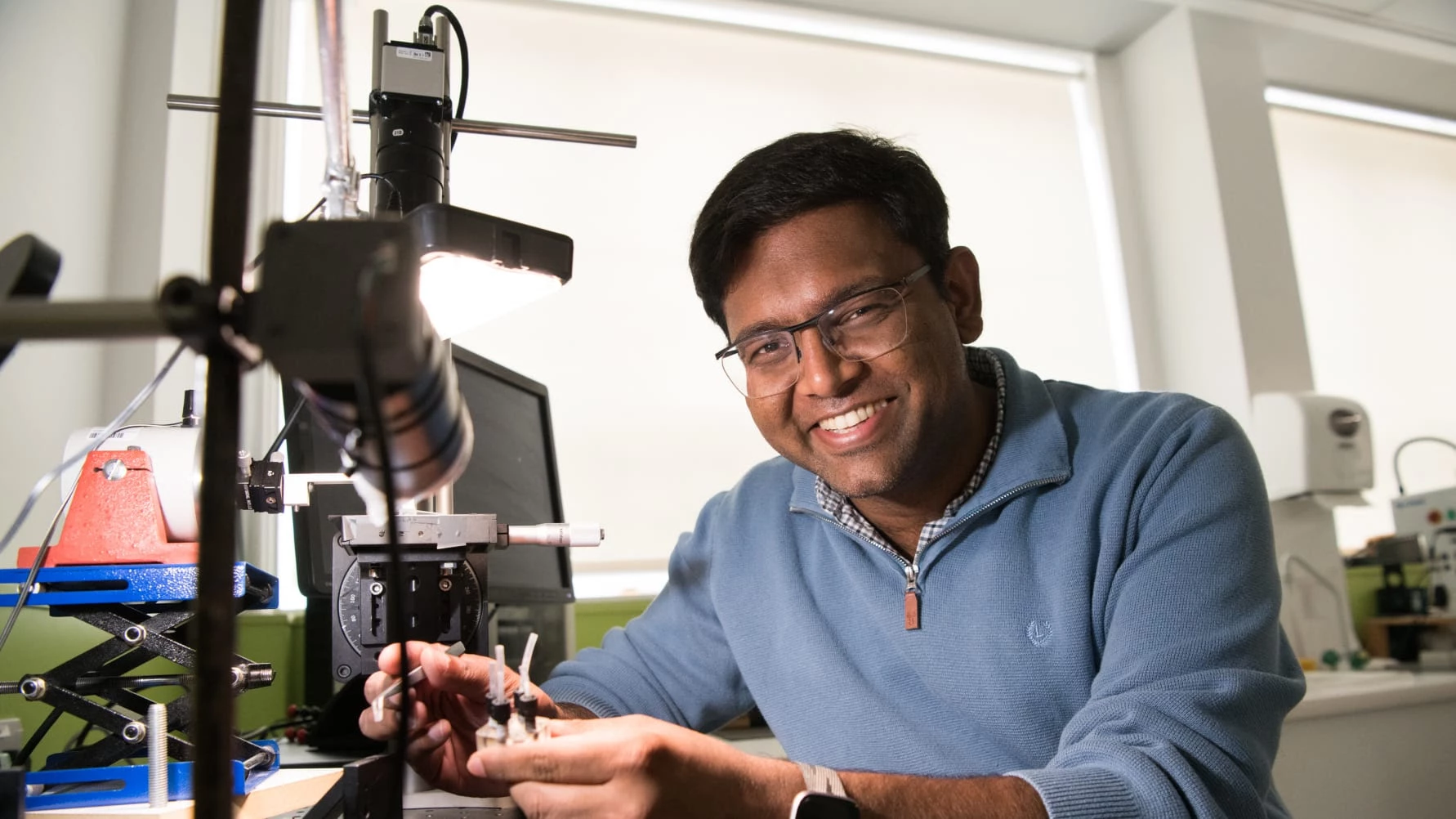
Northumbria university academic awarded with six figure funding to improve cancer diagnosis and treatment
A Northumbria university academic has been awarded almost half a million pounds to develop a new process for sorting micro-nano particles which could improve cancer diagnosis and treatment.
Dr Prashant Agrawal has been awarded a New Investigator grant of £470,000 by the Engineering and Physical Sciences Research Council (EPSRC) to research a new technique for sorting miniscule particles by size, density and their physical properties.
As well as potentially transforming the healthcare sector, the technology could also be used in the food, energy, agricultural and cosmetics industries. Micro-nano particles can be found in a wide variety of products, including emulsions in paint, agriculture, and cosmetics; metal nanoparticles for anti-bacterial optical coatings; and micro-nano capsules for drug delivery and therapeutics.
For all these applications, the size of the particles used in the final product is crucial – for example, ensuring the medication inside a drug capsule is delivered to the correct part of the body, or ensuring am emulsion remains stable enough to give it an appropriate shelf life.
Selecting the right sized particles is also crucial in microfluidic healthcare diagnostic technologies, where biological cells are separated and isolated to provide personalised cancer therapeutics and drug discovery.
The current technology for sorting particle size either allows for high precision but at a low volume, making the process accurate but very expensive; or at a higher volume but with much lower success rates, making it cheaper but less accurate.
The new technology being developed by Dr Agrawal and colleagues at Northumbria University uses low frequency liquid oscillations to create gradients in the flow of the particles, thereby driving them to specific locations.
Early detection of these cells is key, and as well as isolating these cells, Dr Agrawal’s method could also be used to extract them so they can be used for personalised drug treatment for the patient.
Speaking about his research, Dr Agrawal said: “This new method has the potential to transform how micro-nano particle sorting is carried out and this could have life-changing consequences, especially in the healthcare sector where timely and cost-effective diagnosis, and personalised drug treatment, makes such a difference to a patient’s long-term prognosis.
Speaking about the grant and Dr Agrawal’s research, Professor John Woodward, pro vice-chancellor for the faculty of engineering and environment at Northumbria University, said: “This is innovative and impactful research which has potential application across a wide variety of sectors.
“At Northumbria University we support our early career academics to develop their research through awards and grants, as well as exploring commercialisation opportunities and establishing industry partnerships.”
By Mark Adair – Correspondent, Bdaily
- Add me on LinkedIn and Twitter to keep up to date
- And follow Bdaily on Facebook, Twitter and LinkedIn
- Submit press releases to editor@bdaily.co.uk for consideration.
Looking to promote your product/service to SME businesses in your region? Find out how Bdaily can help →
Enjoy the read? Get Bdaily delivered.
Sign up to receive our daily bulletin, sent to your inbox, for free.






 A legacy in stone and spirit
A legacy in stone and spirit
 Shaping the future: Your guide to planning reforms
Shaping the future: Your guide to planning reforms
 The future direction of expert witness services
The future direction of expert witness services
 Getting people into gear for a workplace return
Getting people into gear for a workplace return
 What to expect in the Spring Statement
What to expect in the Spring Statement
 Sunderland leading way in UK office supply market
Sunderland leading way in UK office supply market
 Key construction developments in 2025
Key construction developments in 2025
 Mediation must be part of planning process
Mediation must be part of planning process
 From apprentice to chief financial officer
From apprentice to chief financial officer
 Don't stifle growth with apprenticeship cuts
Don't stifle growth with apprenticeship cuts
 The start-up landscape: What lies ahead in 2025
The start-up landscape: What lies ahead in 2025
 JATCO adds welcome drive to automotive sector
JATCO adds welcome drive to automotive sector